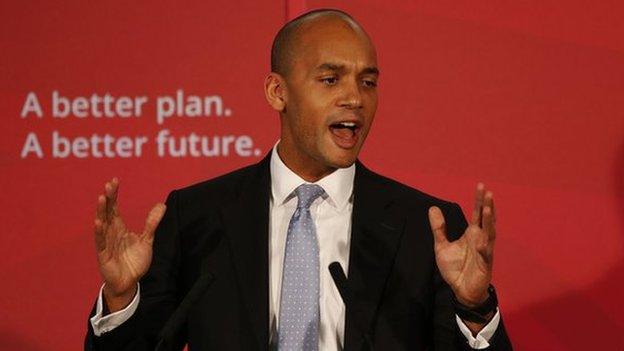Labour leadership: Cooper and Burnham bids ahead of September election
- Published
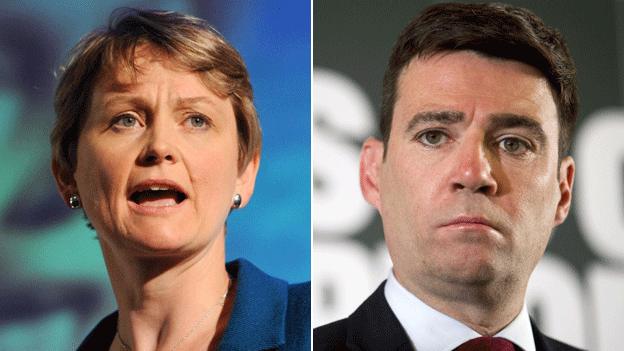
Ex-cabinet ministers Andy Burnham and Yvette Cooper are to stand for Labour's leadership, with the winner elected in September before the party conference.
Health spokesman Mr Burnham said the party must support the "aspirations of everyone", while shadow home secretary Ms Cooper said it must promise "hope".
They join Chuka Umunna and Liz Kendall in the race to succeed Ed Miliband.
Acting leader Harriet Harman pledged an "open and honest" debate on the future, as she set out the election timetable.
"Our challenge now is to use this time to listen and learn, to elect a new leader and deputy leader who will rebuild the Labour Party in order to take the fight to this Tory government and to stand up for Britain," she said.
Mr Miliband resigned last week after the party was left with just 232 seats, having sustained heavy losses at the hands of the SNP and failing to make ground in England. The Conservatives defied the opinion polls to win an overall majority.
Andy Burnham: "Our challenge is... to rediscover the beating heart of Labour"
Under the timetable drawn up by the party's National Executive Committee (NEC), hopefuls have until 15 June to meet the requirement of having the backing of 15% of the party's MPs by gaining nominations from 34 colleagues.
Under rules agreed last year, all Labour Party members, registered supporters and affiliated supporters - including union members - will be allowed one vote each.
The ballot will close on 10 September, with the new leader announced two days later. Labour's annual conference begins on 27 September.
In a video announcing his intention to stand, external, Mr Burnham said the party needed a leader "whose voice could carry into all the nations and regions of the UK".
'Match ambitions'
"Our challenge is not to go left or right, to focus on one part of the country above another, but to rediscover the beating heart of Labour," he said, adding: "That is about the aspirations of everyone, speaking to them like we did in 1997."
Ms Cooper announced her bid in a column for the Daily Mirror, external. She wrote: "Labour lost because we didn't convince enough people in all parts of the country that we had the answers to match up with their ambitions.
"Our promise of hope wasn't strong enough to drown out the Tory and UKIP voices of fear. That's what we need to change."
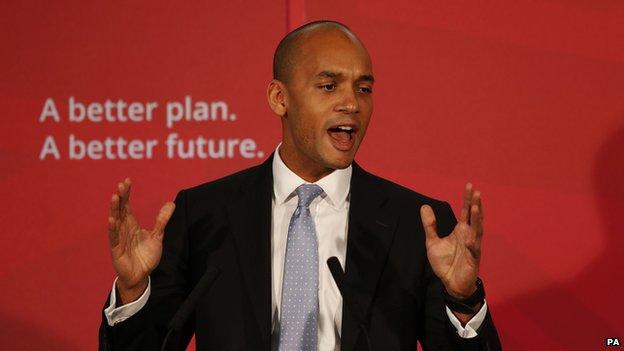
Chuka Umunna said the election defeat was a "collective failure on the front team"
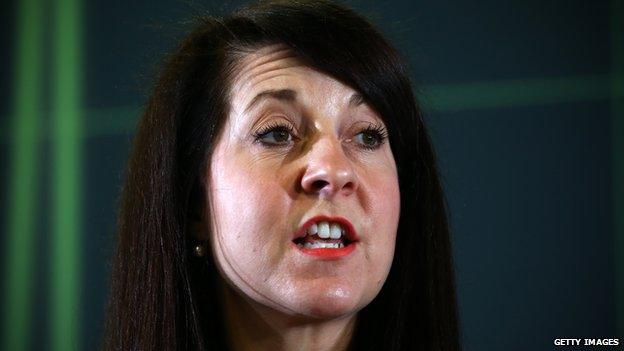
Liz Kendall said a "fundamentally new approach" was needed from her party
Mr Umunna, the shadow business secretary, has said the party must address the aspirations of people "all the way up the income chain", while shadow care minister Ms Kendall has suggested Labour lost the election "because people didn't trust us on the economy".
Tristram Hunt and Mary Creagh are also seen as potential successors.
However, work and pensions spokeswoman Rachel Reeves has ruled herself out, telling the BBC the party needed to be in the centre ground of British politics to win the next election.
BBC political correspondent Ben Geoghegan said the three-hour NEC meeting rejected the option of a quick election to see a fresh face taking on David Cameron in the Commons immediately after the summer recess.
"They've decided not to rush into this," he said, adding that the committee was also keen to avoid a clash with the party's annual conference.
"There were some concerns that if they used the annual conference as a way of electing the new leader, that would be a big distraction from looking at policy and debating all the important issues that the party faces."
'Muddled message'
On Wednesday Len McCluskey, general secretary of the Unite union, dismissed claims that Labour lost the general election because it was too left-wing and said his union would "play its part" in the debate on the party's future.
"Labour didn't lose votes by proposing to tax the wealthiest a bit more, or intervene in the housing and energy markets. It did lose support because of its muddled message on austerity," he said.
However, donor Assem Allam, who gave the party £500,000 this year, has called for the party to adopt a more "pro-business" stance.
Labour must also choose a new deputy leader to replace Ms Harman, who has said she will not seek re-election to the post. Stella Creasy, Tom Watson, Angela Eagle and Caroline Flint are thought to be in the running.
Candidates for London mayor will also be chosen, with nominations closing on 10 June and a shortlist announced three days later. So far, Tooting MP Sadiq Khan, Diane Abbott, MP for Hackney North, former Culture Secretary Tessa Jowell, Tottenham MP David Lammy and author and journalist Christian Wolmar have declared they will run.
The party has not yet said when it will declare the result of the voting.

Labour leadership timetable
15 May: The formal election period opens
8 June: Parliamentary Labour Party will stage hustings for the contenders
9 June: More hustings for the deputy leader contenders. Nominations for both posts open.
15 June: Nominations for leader will close at midday
17 June: Nominations for their deputy will close at midday
12 August: Deadline for people to join the Labour party
14 August: Ballot papers sent out by post
10 September: Polling closes at midday
12 September: Winners announced at special conference
27 September: Labour's party conference begins
- Published12 September 2015
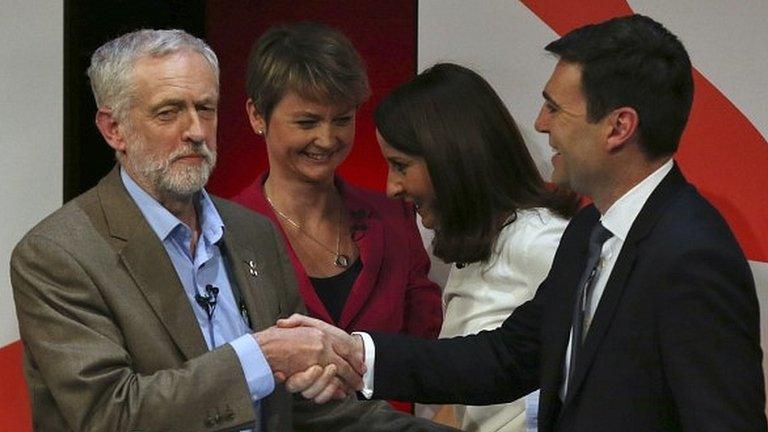
- Published13 May 2015
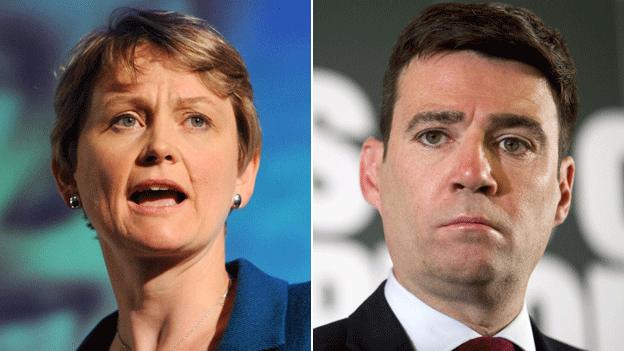
- Published10 May 2015
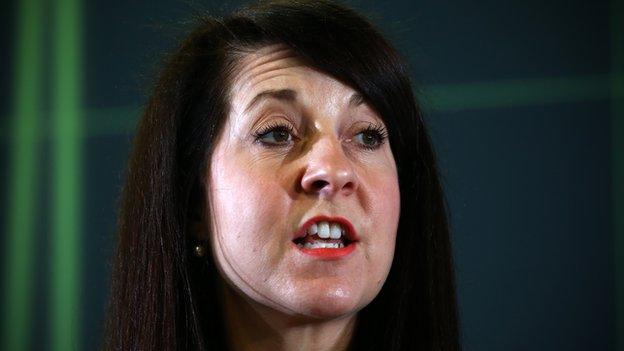
- Published12 May 2015
